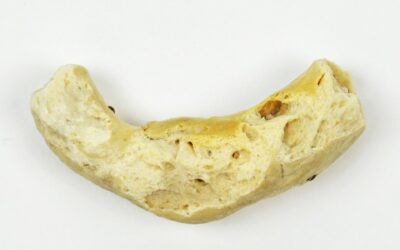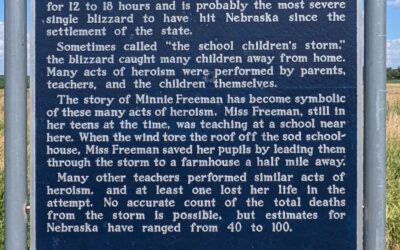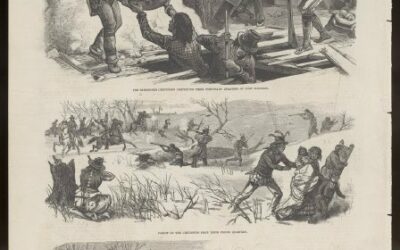Prior to World War I the Burlington and other railroads experimented with special railroad cars bearing exhibits and lecturers to spread information on modern farming and stock raising techniques. The railroads were much concerned with finding ways to develop an adequate economy in the areas that they served to make the roads more profitable.
The Ainsworth Star-Journal, February 16, 1905, reported, “The first potato special probably ever seen in the United States will start from Harrison, Neb., Thursday, February 28, over the Northwestern railroad. The special will carry a number of professors from the state university agricultural school and will be conducted on the same lines as the corn special of a few months ago. The educators will barrel eastward, delivering lectures at various points along the route to O’Neill, making a two-days’ trip. It is believed by Professor E. A. Burnett, director of the department of animal husbandry at the state farm, who will accompany the train, that great interest will be aroused on the subject of potato growing and that it will prove of much value to the industry in Nebraska.”
The “potato special” arrived in Ainsworth on March 1, and the Star-Journal of March 2 reported that “quite a delegation of farmers and towns people was present to greet them. The lecturers at once waded into their subjects, and while their argument was not new to many of us, it will have a tendency to make us more active along proper channels. The lecturers put special stress on preserving moisture by following what is known in this state as Campbell’s idea of soil culture-cultivate your ground considerably and often, thus retain the surplus moisture in the ground for future use. They also told us that we must select good seed and breed up, same as we are doing with our live stock. When they told us that we raised the best flavored potatoes in western Nebraska . . . , they only told us what we already knew.”
Ainsworth’s Western Rancher and Brand Recorder of February 22 was somewhat less enthusiastic: “There was nothing new in the lectures. Conservation of moisture and Red River seed potatoes were the essence of the addresses.” On March 15 the paper noted, “A reduction of freight rates is what would interest the producers more than anything else at the present time. Let the Northwestern save the expense of hiring lecturers and give the producers the benefit of this useless expense in reduced freight rates[. That] is what would boom and enrich this country.”



